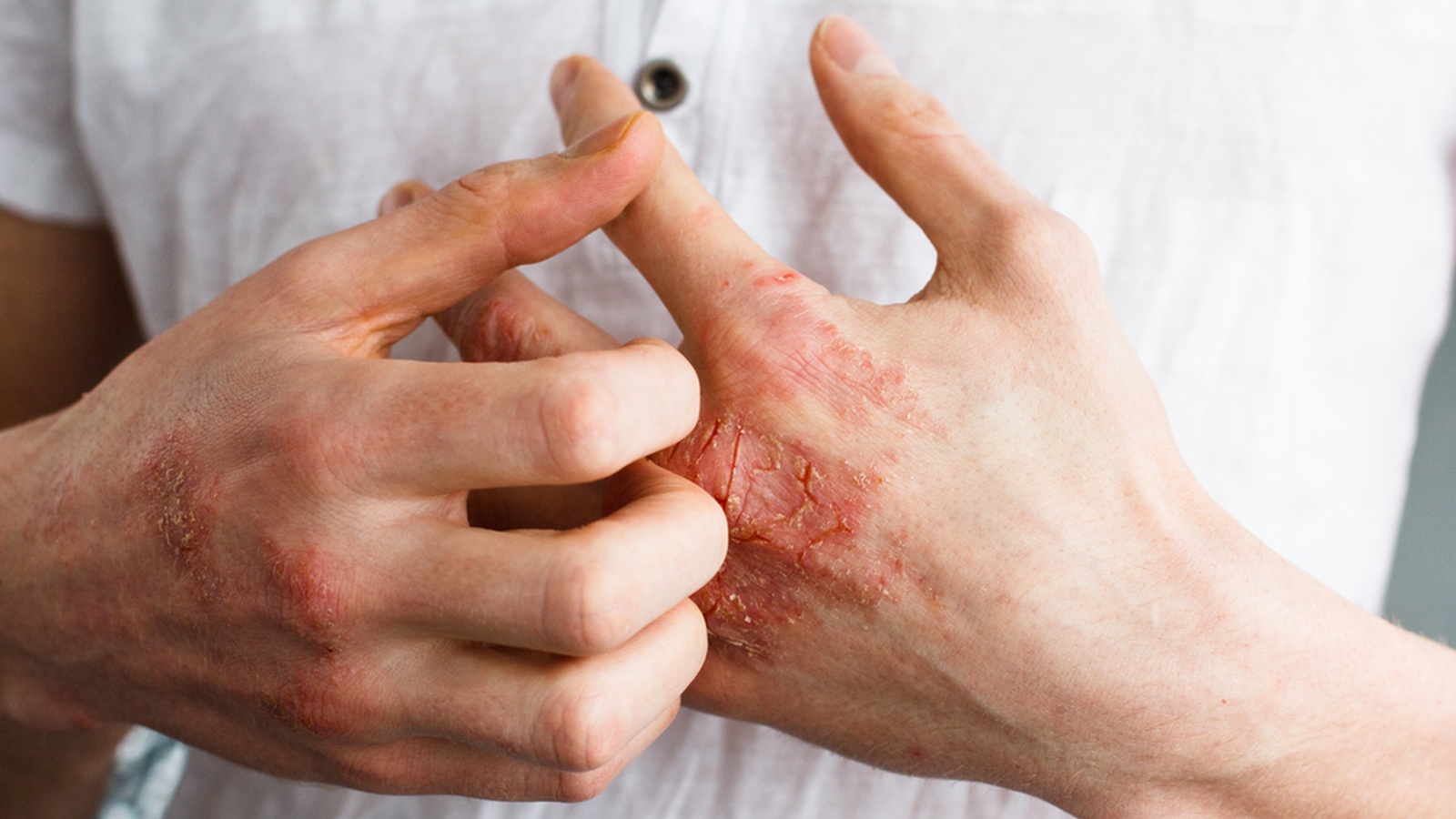5 Unusual Causes of Eczema & How To Get Relief Naturally
When it comes to health, it’s more than just skin deep. We’re taking a closer look at some of the more unusual causes and triggers of eczema and how to get relief from the inflammatory and irritating skin symptoms naturally.
Skin – it’s our largest visible organ, and according to Traditional Chinese Medicine, the status of our skin is a good reflection of what is going on internally as well. When it comes to eczema, it’s actually quite common. In fact, over 30 million Americans have some form of the skin disease. Symptoms can range from more basic skin sensitivities, rashes, and inflammation to resistant dark, rough or leathery patches of skin that may crust, ooze, bleed, or swell. Most eczema sufferers will exhibit symptoms in the first five years of life, usually in the form of red patches or rashes on the face or body, while others may go years until the onset of their first symptoms.
While the cause of eczema is not entirely know, we do know that it is a mix of both genetics, the immune system response and the environment that can trigger and exacerbate the inflammatory response of skin in eczema suffers. Eczema is a complex and often irritating or even painful condition. While not contagious, it can interfere with a person’s daily life, confidence and self-image. It can be frustrating to treat when even minor irritants may trigger a reaction that may be slow or impervious to even prescriptive remedies.
Whether you’ve been diagnosed with eczema or not, we’re exploring the more unusual causes of these irritations and providing all natural solutions to the most stubborn skin irritation. Because when it comes to health, it’s more than just skin deep. Our environment, what we skin, and what we eat can all play a role in the state of our skin.
Unusual Causes or Triggers of Eczema
Asthma and Hay Fever
Atopic dermatitis, or AD, is the most common form of eczema. It often appears as a red, or itchy rash, usually on the cheeks, arms or legs. Typically, this is the form of eczema that is diagnosed in the younger years of life. More so, most sufferers of AD may also experience other allergic conditions such as asthma and hay fever, and usually it runs in the family.
Food Allergies
While we don’t know the full cause of eczema, we do know that the immune system plays a part, becomes overactive and causes inflammation in the skin. Looking to food and food allergies and sensitivities can be a missing piece of the puzzle in resolving or at least lessening symptoms. Removing commonly allergenic foods such as dairy, shellfish, nuts and seeds, gluten, and even elimination of processed foods may be encouraged. In addition, the mother’s diet while breastfeeding and the age when an infant is weaned and with what types of food may also play a role in developing symptoms of eczema.
Stress
Stress creates a host of systematic issues in the body including disrupting one’s hormones and immunity, so it’s no wonder that reducing stressful triggers and creating a peaceful environment would be an important part in treating the inflammatory response associated with eczema.
Environmental and Chemical Irritants
From our environment and pollutants to our everyday household items, skin care, shampoos, soaps, clothing, jewelry, microscopic pests like dust mites or pet dander, and even plain water – no irritant is too insignificant to set of an immune response in an eczema sufferer. Even an itchy sweater, poking shirt tag, or rubbing waistband could lead to the onset of a nasty reaction. Even the skins and juices of fresh fruits and vegetables have potential to create a rash or irritation. Reducing your toxic load with an air purifier, natural skin products, soaps, and buying organic foods may help ease some of these reactions. Additionally, sourcing all cotton clothing, removing all tags, and wearing loose fitting clothing may help as well.
Hormones
Hormonal changes in the body can cause a wide range of bodily symptoms. Some people with eczema may also experience hormonal imbalances, have poor thyroid function or have been diagnosed with hypothyroidism. Hypothyroidism or an underactive thyroid may be linked with weakened circulation causing the skin to get a fraction of the expected normal blood supply, or the body inefficiently removing waste products. Treating the underlying issues related to these hormone imbalances may also help to improve these skin reactions.
How to Relieve Eczema Naturally
Temperature
Often with eczema cases, extreme temperatures play an important part in severity of symptoms. Even plain water has the potential to be overly drying or lead to a reaction. Bathing in lukewarm as opposed to hot water can help to relieve the hot, prickling sensation associated with bathing. Similarly, avoiding extreme temperatures, direct cold or heat, or over exerting oneself in exercise may ease potential effects.
Boosting your Bath
Adding calming nutritive or tannic ingredients to a warm bath such as apple cider vinegar, salts, oatmeal, tea bags, and baking soda can help to calm inflamed skin.
Massage and Acupressure
The stress connection is a real and important factor. Relieving these triggers in the form of massage, acupressure, acupuncture, or meditation can help to reduce these eczema flare ups.
Anti-inflammatory Diet
An overactive immune system combined with a weak gut and hard to digest, potentially allergenic foods can lead to inflammation in the body regardless if you have diagnosed eczema or not. Reducing or eliminating food ingredients like dairy, soy, nuts and seeds, gluten, and processed or fried foods and supplementing with nutrient-dense, anti-inflammatory ingredients like bone broths, healthy fats, probiotic-rich, and fresh produce can help to alleviate potential inflammatory or immune reactions.
Fats
Healthy fats are essential to provide lubrication, as well as nutrition, internally and externally.
Coconut oil not only soothes irritated skin, its antibacterial properties reduce staph bacteria on susceptible wounds. Vegetable glycerin and jojoba oil as well as sesame, castor oil, and argan oils are soothing for the skin externally. Internally, focus on nutritive fats like fermented cod liver oil or high vitamin butter oils to supply core skin-supporting nutrients like A, D, E and K.
Nutrient Gaps
Minerals like zinc, magnesium, calcium, and vitamins like D, A, E, and K are essential not only for good healthy skin, they are essential for many necessary bodily functions. Supplementing with these nutrients or ensuring your diet is balanced and that you are additionally absorbing these nutrients can be a helpful step in reversing skin-related issues.
Herbs
Skin soothing herbs such as geranium, white mallow, calendula, and lavender can be helpful externally to expedite healing, while liver supporting and cleansing herbs like milk thistle can help to remove toxins that may be contributing to skin reactions.
Relief From Natural Products
Do you suffer from eczema-related skin issues? These all natural products can help reduce the severity of symptoms without chemicals or cortisone.
- Shea Moisture Organic Raw Shea Butter Baby Skin Therapy
- Forces of Nature Eczema Control
- Forces of Nature Organic Eczema Cleanse
What Are Your Best Ways Of Finding Relief From Eczema?
If you haven’t already, join our free global challenge at www.GetOffTheGluten.com to receive daily recipes & health tips, access to our private group for support and inspiration, plus before and after testing to track your progress in key areas of your life such as weight, sleep, bloating, skin-conditions, mental health and more!










